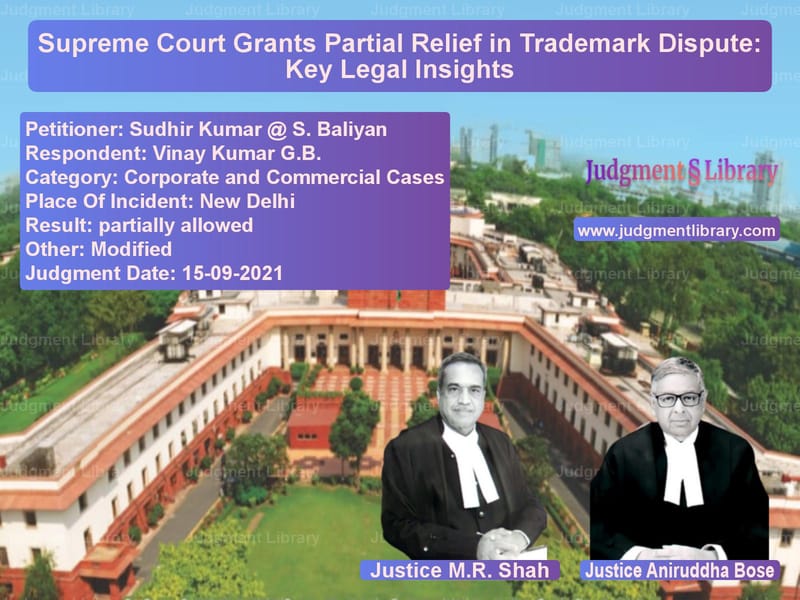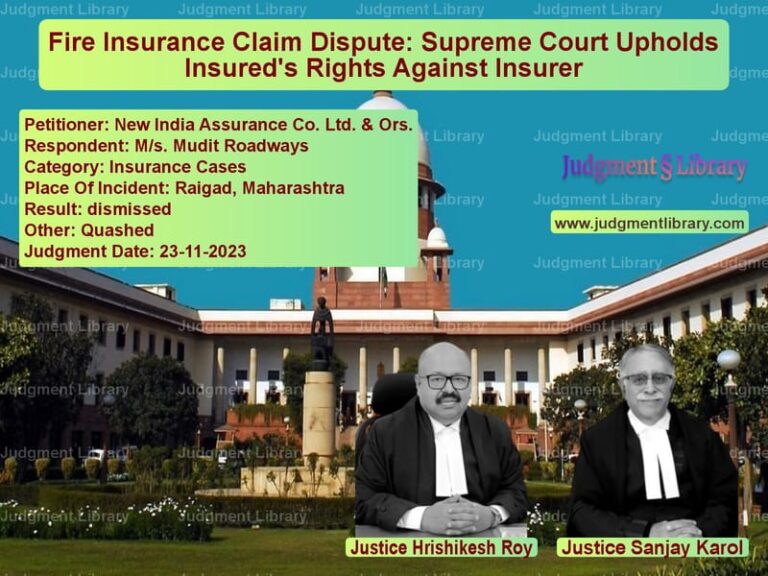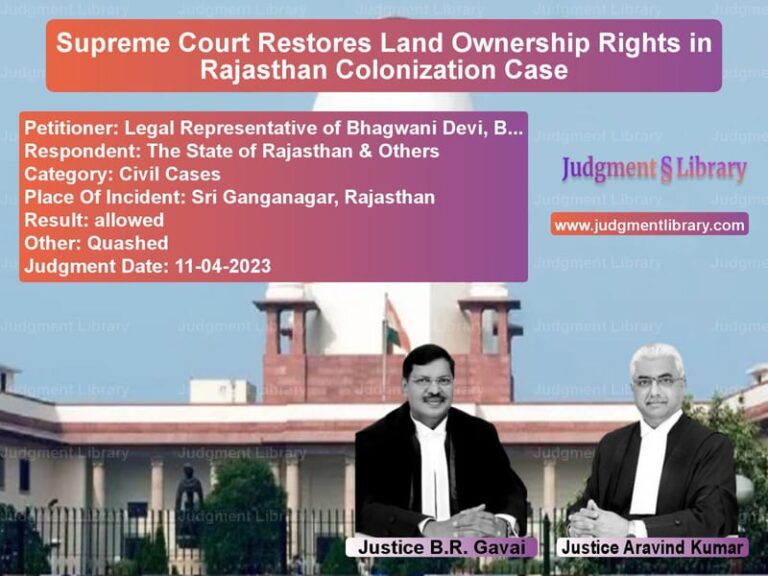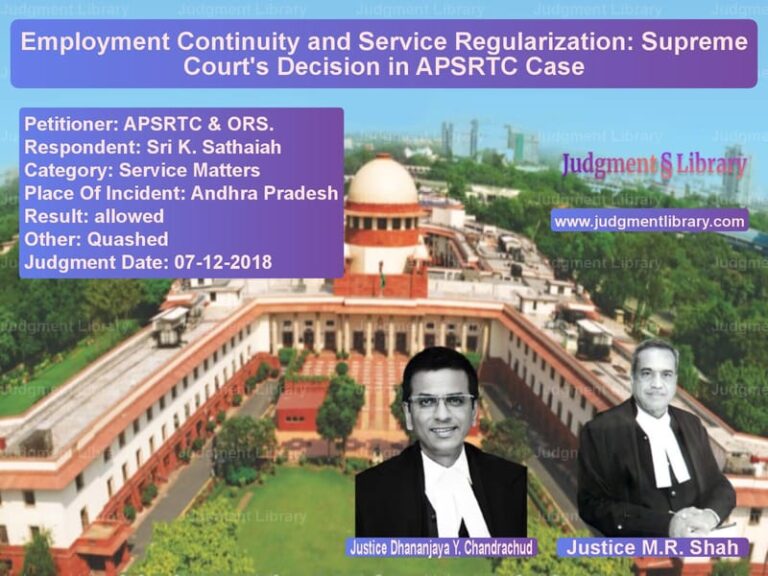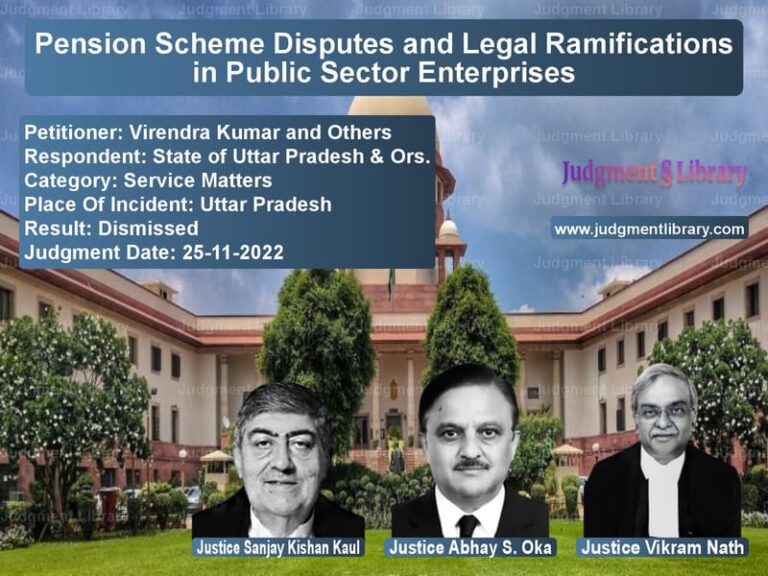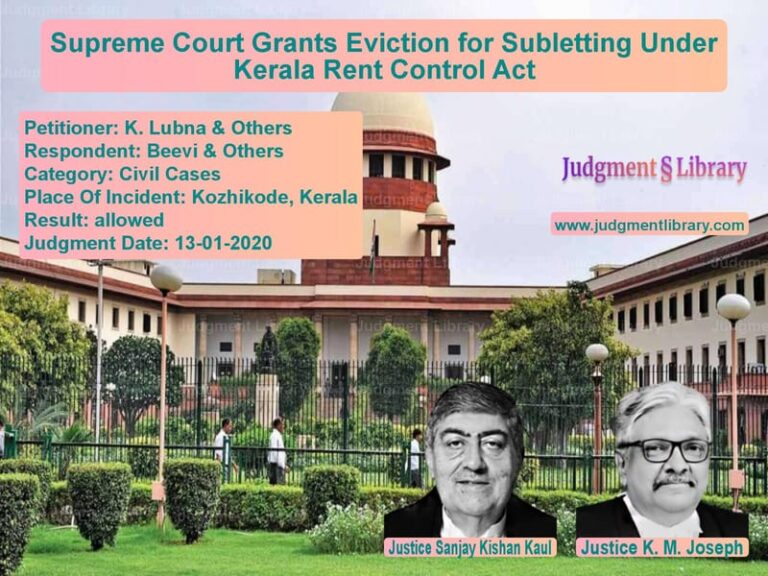Supreme Court Grants Partial Relief in Trademark Dispute: Key Legal Insights
The Supreme Court has recently ruled on a crucial trademark dispute in the case of Sudhir Kumar @ S. Baliyan v. Vinay Kumar G.B.. This case revolved around the trademark ‘INSIGHT’ and the use of similar names such as ‘INSIGHT ACADEMY,’ ‘INSIGHT IAS ACADEMY,’ and ‘INSIGHT PUBLICATIONS.’ The judgment provides significant clarity on procedural aspects under the Commercial Courts Act, 2015 and the filing of additional documents under the Code of Civil Procedure (CPC).
Background of the Case
The appellant, Sudhir Kumar @ S. Baliyan, filed a commercial suit before the Commercial Court seeking a permanent injunction against the defendant for using the disputed trademark. Initially, he had filed Trade Mark Suit No. 236 of 2018, but it was withdrawn due to non-compliance with the provisions of the Commercial Courts Act. A fresh suit was filed on August 31, 2019.
The appellant also filed an application under Order VII Rule 14(3) of the CPC, seeking the court’s permission to place additional documents on record. However, the Commercial Court dismissed the application on November 13, 2019. Subsequently, the High Court of Delhi, in an order dated April 6, 2021, upheld the Commercial Court’s decision, prompting the appellant to approach the Supreme Court.
Read also: https://judgmentlibrary.com/corporate-insolvency-case-supreme-court-upholds-cirp-withdrawal/
Key Legal Issues Considered
- Whether additional documents could be placed on record in a commercial suit under the CPC.
- The applicability of Order XI Rule 1 under the Commercial Courts Act, 2015.
- The procedural requirements for submitting additional documents in trademark disputes.
Arguments by the Appellant
- The appellant contended that the additional documents were essential for a just decision of the suit.
- He argued that since the defendant was allowed to submit additional documents under Order XI Rule 1(10) of the CPC, the same benefit should be extended to the plaintiff.
- The appellant further stated that the documents, especially invoices, were not available at the time of filing the plaint but were discovered later.
- He emphasized that the application was filed within 10 days of the suit, negating any claim of undue delay.
Arguments by the Respondent
- The respondent argued that Order XI Rule 1 of the CPC, which applies to commercial courts, supersedes Order VII Rule 14(3), making the appellant’s application invalid.
- It was contended that the appellant failed to provide sufficient reasons for not filing the documents with the original suit.
- The respondent also claimed that the timing of the application was an afterthought, filed only when the injunction application was pending.
Supreme Court’s Observations
The Supreme Court, comprising Justices M.R. Shah and Aniruddha Bose, thoroughly analyzed the procedural requirements under the CPC and the Commercial Courts Act before delivering its ruling.
- The Court emphasized that Order XI Rule 1 is applicable to commercial suits and mandates plaintiffs to submit all documents in their possession at the time of filing the suit.
- However, it acknowledged that Order XI Rule 1(4) allows plaintiffs to seek leave to submit additional documents within 30 days of filing the suit.
- The Court ruled that invoices, which were not in the appellant’s possession when the plaint was filed, should be permitted as additional documents.
- However, the other documents, which were in the appellant’s possession but not filed due to their voluminous nature, were rightly rejected by the lower courts.
Final Judgment
The Supreme Court partially allowed the appeal, with the following key directives:
- The appellant was granted leave to place the invoices on record as additional documents.
- The rejection of other additional documents was upheld.
- The ruling did not affect the outcome of the pending interim injunction application.
Conclusion
This judgment sets a significant precedent regarding procedural compliance in commercial suits, particularly concerning additional documents. The Court reinforced that while commercial suits must strictly adhere to procedural rules, exceptions can be made where the interests of justice demand it.
The ruling ensures that plaintiffs cannot circumvent procedural requirements without valid reasons while also preventing undue hardship when new documents are genuinely discovered later. The decision is a crucial reference point for future cases involving intellectual property rights and commercial disputes.
Petitioner Name: Sudhir Kumar @ S. Baliyan.Respondent Name: Vinay Kumar G.B..Judgment By: Justice M.R. Shah, Justice Aniruddha Bose.Place Of Incident: New Delhi.Judgment Date: 15-09-2021.
Don’t miss out on the full details! Download the complete judgment in PDF format below and gain valuable insights instantly!
Download Judgment: sudhir-kumar-@-s.-ba-vs-vinay-kumar-g.b.-supreme-court-of-india-judgment-dated-15-09-2021.pdf
Directly Download Judgment: Directly download this Judgment
See all petitions in Company Law
See all petitions in unfair trade practices
See all petitions in Corporate Compliance
See all petitions in Judgment by Mukeshkumar Rasikbhai Shah
See all petitions in Judgment by Aniruddha Bose
See all petitions in partially allowed
See all petitions in Modified
See all petitions in supreme court of India judgments September 2021
See all petitions in 2021 judgments
See all posts in Corporate and Commercial Cases Category
See all allowed petitions in Corporate and Commercial Cases Category
See all Dismissed petitions in Corporate and Commercial Cases Category
See all partially allowed petitions in Corporate and Commercial Cases Category

